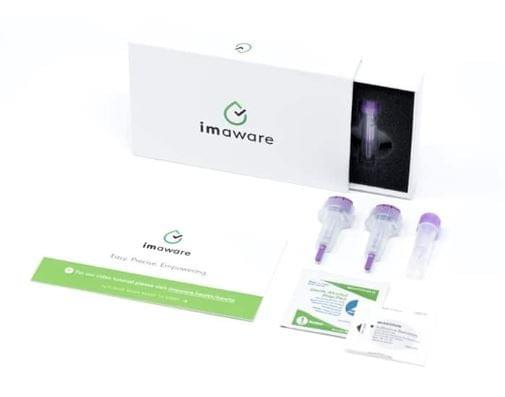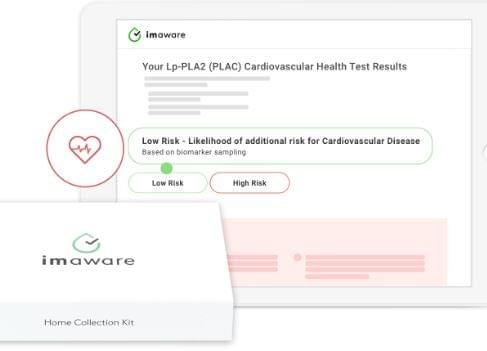

- Home
- About
- PAD Leg Saver Hotline
- Peripheral Artery Disease Info
- PAD Groups
- I Quit Smoking
- Red Sock Day
- PAD: The Lived Experience
- The Heart of Innovation
- PAD Events
- Get Involved
- Swag Shop
- PAD Blog
- PAD Trials and Research
- 0

Critical Bloodwork
Know if you are at-risk of heart attack, stroke, & amputation!
"It's scary that most people don't know they're at risk for Cardiovascular Disease until they suffer a heart attack!"
~ Dr. Adriane Hines, Internal Medicine & Functional Medicine Practitioner
>50% of people who suffer a heart attack have normal cholesterol in a basic lipid panel.
- Heart Attacks Remain #1 killer. 1.5 million heart attacks & strokes annually.
- More than 200,000 needless amputations due to systemic plaque build-up in the arteries, including the legs.
>50% of Americans have pre-Diabetes/Diabetes
- Only 11.6 percent of adults with pre-diabetes know they have it.
- One-third of adults with full type 2 diabetes don't know they have it.
- More than one in every 10 adults who are 20 years or older has diabetes.
So, what can we do about it?
Since most general practitioners don't offer advanced bloodwork to determine *actual* risk for heart attack, stroke, & amputation, we are putting the power in your hands. What we offer:
1Ask Your Doctor
We offer a downloadable list of blood tests to request from your doctor
2Order Bloodwork
We offer an option to buy the tests yourself and do them at home with a simple finger prick.
3Donate Bloodwork
We offer the ability to donate critical bloodwork to patients most at-risk in underserved communities.
Meet Dr. Adriane Hines
She explains why advanced bloodwork is important and what tests you may want to request from your doctor or order yourself directly through our site.

Download Bloodwork List
Take to your doctor.

Order Critical Bloodwork
I'm taking my health into my own hands!

Donate Bloodwork
Many patients in underserved areas don't have adequate insurance to cover critical tests to help them with early diagnosis & early treatment.
- Critical Bloodwork!
Take your healthcare into your own hands and doctor affiliates will order bloodwork to help your healthcare team better assess your cardiovascular health.
Cardio Genetic 5-Plex Panel
Genetic risk factors for Cardiovascular Disease
KIF6
The kinesin-like family 6 (KIF6) gene was identified as a potential risk factor for CAD. Studies have suggested that this SNP may be predictive of a response to statin therapy. The potential patient populations for KIF6 testing include CAD patients with or without a family history of CAD or myocardial infarction (MI), and patients considering statin therapy.
9P21
9P21 remains the most widely recognized and replicated genetic risk factor for coronary heart disease (CHD) to date. It is an independent marker of cardiovascular risk, independently associated with the development of heart disease (CAD) and the likelihood of a heart attack. 9P21 carriers have a 56% increased lifetime risk of a heart attack and a higher risk for severe, multi-vessel arterial disease.
4q25
Variants of 4q25 are associated with atrial fibrillation. This risk allele variant is found in 30% of Caucasian population and 70% of Chinese population. Atrial fibrillation is the most common sustained cardiac rhythm disturbance, affecting more than 2 million Americans.
Apolipoprotein E (ApoE)
ApoE genotype influences lifetime risk for coronary heart disease and Alzheimer’s disease, as well as how your body metabolizes nutrients in your diet, including fats, carbohydrates, protein and even alcohol. It also aids in understanding how the body responds to exercise. The ApoE gene has three variants (E2, E3, and E4). Individuals with Apo E2 or Apo E4 carry higher lifetime cardiovascular risk.
Haptoglobin
This protein in the blood helps protect from some heart-related complications of diabetes unless it's impaired. It's function is to eliminate free hemoglobin and neutralize oxidative damage which can trigger atherosclerosis. Diabetics with the Haptoglobin (Hp) 2-2 genotype are at increased risk of CVD. Antioxidant Vitamin E could help neutralize oxidative stress & increase cardiovascular protection to Hp 2-2 DM individuals. Serum free hemoglobin blood test, which measures the level of free hemoglobin is a good indicator whether a diabetic might have a Haptoglobin variation and should consider the Haptoglobin blood test. Diabetic patients with Hp2 genotype have a 5x greater risk of a heart attack than those with Hp1. Knowing a patient’s variant can provide clinicians guidance on measures to reduce heart attack and stroke risk.
Heart Health Essentials
Basic Lipid Panel: Total cholesterol, HDL-C, LDL-C, triglycerides. It's what your doctor typically performs during annual exams but it's important to have as a baseline alongside these more advanced tests.
Lp(a)
This biomarker let's you know if you have a genetic predisposition for vascular diseases. It's a particle in the blood which carries cholesterol, fats and proteins. High levels of it increase your risk for a build-up of fatty deposits in the arteries (atherosclerosis). A genetic variation can be inherited that leads 1 in 5 people to have high levels.
Apolipoprotein (ApoB)
The Apolipoprotein B's are proteins found in lipoprotein particles that are artery-clogging.
Hemoglobin A1c (HbA1c)
The HbA1c test reveals average level of blood sugar over the past 2 to 3 months. Elevated glucose levels cause damage to blood vessels.
Glucose
Provides information about your sugar levels at time of testing.
hsCRP
This biomarker can fluctuate quite a bit depending on your environment, what you eat, and other factors. But it's worth monitoring so you can adapt your environment, what you eat, and other factors to see if it changes. You may even have an underlying infection we aren't aware of such as a sinus infection or UTI which could be triggering an inflammatory response.
Lp-PLA2
Let's drill down a bit more to see if you have inflammation in your arteries specifically. That's telling as to whether or not you have plaque building up on your artery walls. Lp-PLA2 is an enzyme produced by the body in response to inflammation in the arteries. A PLAC blood test can help identify plaque build-up that could lead to narrowing in arteries.
(You can order Lp-PLA2 as a stand alone test as well)
Haptoglobin Only (for Diabetics)
Haptoglobin
This protein in the blood helps protects from some heart-related complications of diabetes unless it's impaired. It's function is to eliminate free hemoglobin and neutralize oxidative damage which can trigger atherosclerosis. Diabetics with the Haptoglobin (Hp) 2-2 genotype are at increased risk of CVD. Antioxidant Vitamin E could help neutralize oxidative stress & increase cardiovascular protection to Hp 2-2 DM individuals. Serum free hemoglobin blood test, which measures the level of free hemoglobin is a good indicator whether a diabetic might have a Haptoglobin variation and should consider the Haptoglobin blood test.
Got Bloodwork? Now, what?
Dr. Adriane Hines helps patients understand their Heart Attack, Stroke, & Amputation Risk by ordering and reviewing bloodwork that reveals genetic & metabolic factors which could be damaging their arteries.
Buy nowBloodwork Review | Diet & Supplement Recommendations$150.00 - $300.00Buy nowHealth-Conscious Virtual Shopping$25.00 - $200.00Join Our Wellness Group
Our entire wellness team is at your fingertips!
- Get real-time support from Dr. Adriane Hines, Fitness & Stress Reduction Coach Susan Davis, and more!
- Plus, get support from friends who are also trying to improve their Vascular Health!
The Way To My Heart © 2025




